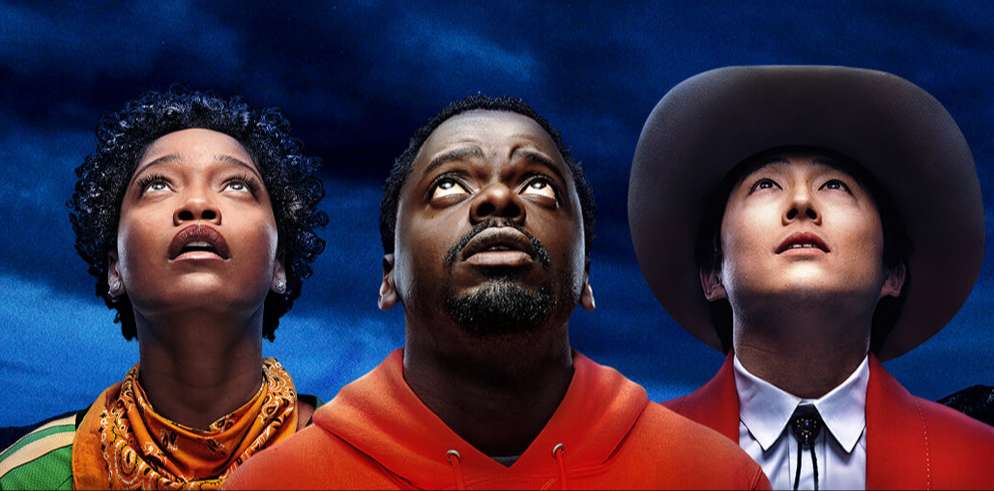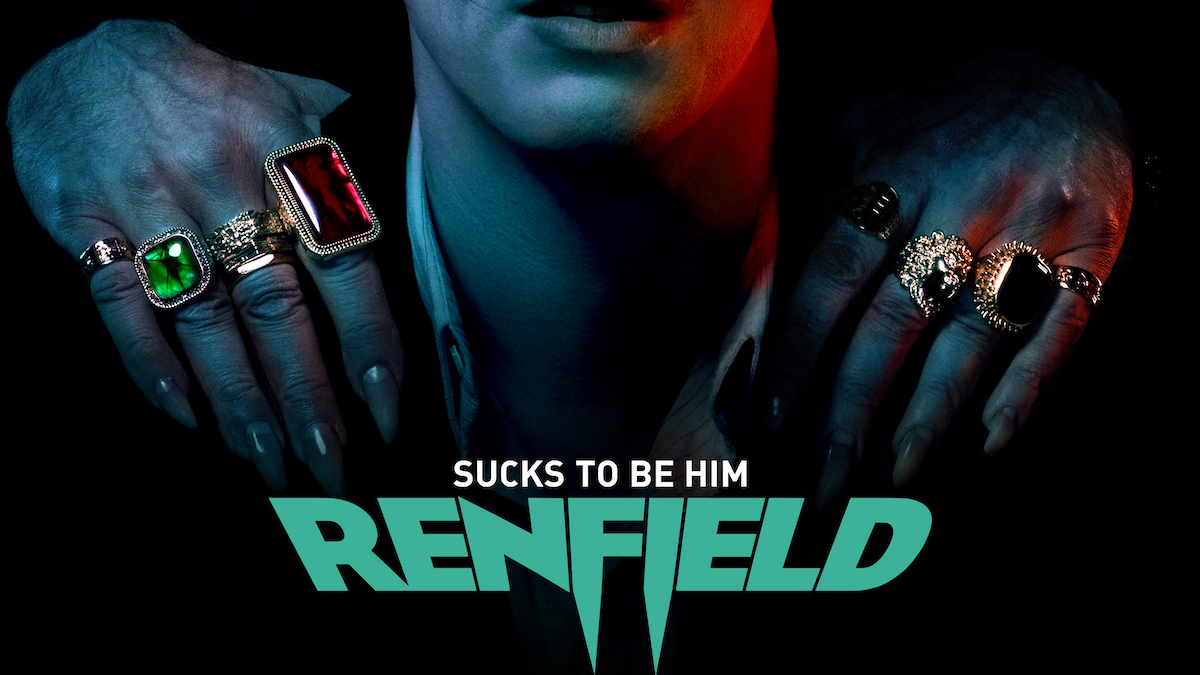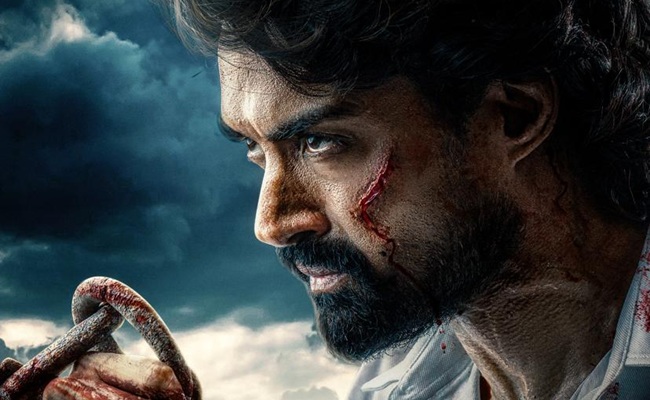

Movie
Nope…More like Yep!
Jordan Peele films tend to inspire trust from moviegoers who have come to believe him to be one of the genre’s greatest minds. I personally like his directorial and writing style as they tend to conjure conversations that people may not approach had they not been brought up in this form of entertainment. First, you had Get Out playing out most Black people’s (at least my personal, slightly irrational fear of being surrounded by “too many” White folks) nightmare. And then, there was Us. I mean I didn’t get it but I just know there was some super deep meaning behind the movie and my analytical brain was just too burned out not to see it. In his third foray into filmmaking, Nope I tried my damnedest to go into the viewing with no expectations or prior knowledge to give purity to my watching of this film as great expectations are a gift and a curse to Jordan Peele projects.
I was glad to see Daniel Kaluuya back in a Peele movie as it seems they could be a Samuel L. Jackson/ Tarantino- esque combination in the making. They just seem to get the best out of one another. His character does not emote verbally much but, Kaluuya gets across more emotion in a few side-eye glances and yups than most others with more dialogue. His quiet cowboy is very reminiscent of Clint Eastwood in the early western phase of his career. Keke Palmer plays Kaluuya’s OJ’s sister and not going to lie she was mad annoying. I simply did not like her character. Not for her acting but, the character she plays just was grating. If it was meant to be that way, she deserves an Oscar nom at least. But, if not… let’s just say I wasn’t a fan of the character. Steven Yuen plays a former child star turned small town western theme park owner. It’s a weird role but, he’s up to the task. He’s not on the screen a lot but, he makes the moments he has count. Lastly, the slightly neurotic, definitely paranoid Fry’s employee

Movie
Bala Ramayanam (1996) – A Classic Retelling of the Epic

Director: Gunasekhar
Studio: Sri Venkateswara Bala Kuteer
Genre: Mythological, Drama
Runtime: Approx. 133 minutes
Writers: Gunasekhar (Screenplay), Valmiki (Based on the Ramayana)
Starring: Master NTR (Lord Rama), Master Rajesh (Lakshmana), Baby Sowmya (Sita), Master Ramakrishna (Hanuman)
Indian cinema has a long-standing tradition of adapting mythological epics for the screen, and Bala Ramayanam (1996) stands out as a unique and ambitious project. Directed by Gunasekhar, this Telugu-language film is a faithful retelling of the Ramayana, featuring an all-child cast—a remarkable feat that adds a layer of innocence and charm to the story.
Master NTR, the grandson of legendary actor-politician Nandamuri Taraka Rama Rao, delivers an impressive performance as Lord Rama, capturing both his divine composure and human emotions. The supporting cast, particularly Master Rajesh as Lakshmana and Baby Sowmya as Sita, bring sincerity to their roles, making the film engaging despite their young age.
Gunasekhar’s direction ensures that the grandeur of the Ramayana is upheld, with stunning sets and well-executed battle sequences. The cinematography and art direction elevate the film, bringing a divine aura to Ayodhya and Lanka alike. The music, composed by Madhavapeddi Suresh, complements the film’s devotional tone, with soul-stirring compositions that enhance the narrative.
What makes Bala Ramayanam particularly endearing is its ability to make the epic accessible to younger audiences. The film captures the essence of dharma (righteousness), devotion, and valor, while the young actors’ performances add a layer of purity rarely seen in mainstream adaptations.
While the film’s child cast might feel unconventional for some viewers, their dedication and earnest performances make Bala Ramayanam a memorable and heartwarming watch. The production values, direction, and music all contribute to its timeless appeal. For lovers of Indian mythology and classic storytelling, this film remains a delightful adaptation of the Ramayana.
Final Rating: 8.5/10
Movie
In Memoriam: Gene Hackman (1930–2025) – Celebrating a Legendary Career

Gene Hackman, one of Hollywood’s most respected and versatile actors, passed away on February 26, 2025, at the age of 95. Known for his commanding presence and ability to bring complex characters to life, Hackman left behind an incredible legacy in film. With two Academy Awards, four Golden Globes, and a career spanning over four decades, he was an actor who could master any genre, from gritty crime dramas to heartwarming sports films.
Born on January 30, 1930, in San Bernardino, California, Hackman’s rise to fame was far from conventional. He served in the U.S. Marine Corps before pursuing acting, training at the Pasadena Playhouse alongside fellow legend Dustin Hoffman. His breakthrough came with Bonnie and Clyde (1967), and from there, his career skyrocketed. Hackman’s ability to play both heroes and villains with equal intensity made him a Hollywood powerhouse.
Top 10 Gene Hackman Movies You Need to Watch
1. The French Connection (1971)
Hackman’s Oscar-winning role as Detective Jimmy “Popeye” Doyle defined the modern cop drama, delivering one of cinema’s greatest car chases.
2. Unforgiven (1992)
As the ruthless sheriff Little Bill Daggett, Hackman earned his second Academy Award, proving his ability to embody deeply layered antagonists.
3. The Conversation (1974)
A gripping psychological thriller where Hackman plays a surveillance expert trapped in a moral crisis, showcasing his talent for quiet intensity.
4. Bonnie and Clyde (1967)
His breakout role as Buck Barrow in this groundbreaking crime film introduced audiences to Hackman’s natural charisma.
5. Mississippi Burning (1988)
In one of his most powerful performances, Hackman plays an FBI agent investigating civil rights crimes, earning him another Oscar nomination.
6. Superman (1978)
As Lex Luthor, Hackman brought a mix of charm and menace to the iconic comic book villain, making him a fan favorite.
7. Hoosiers (1986)
A classic underdog sports film where Hackman shines as the determined and passionate high school basketball coach Norman Dale.
8. Crimson Tide (1995)
This intense submarine thriller pits Hackman against Denzel Washington in a gripping battle of leadership and ethics.
9. The Royal Tenenbaums (2001)
Hackman’s turn as the eccentric and dysfunctional patriarch Royal Tenenbaum proved his comedic and dramatic brilliance.
10. The Firm (1993)
Playing a morally ambiguous mentor in this legal thriller, Hackman added depth to one of the decade’s biggest hits.
Gene Hackman retired from acting in 2004, but his influence remains undeniable. His performances shaped modern cinema, inspiring actors and filmmakers alike. Whether playing a hard-nosed detective, a ruthless villain, or a flawed hero, Hackman had the rare ability to make every role unforgettable. His passing marks the end of an era, but his films will continue to captivate audiences for generations to come.
Movie
HAR HAR MAHADEV! Chhaava announces Itself As A Bold And Exhilarating Cinematic Spectacle.

Director: Laxman Utekar
Starring: Vicky Kaushal, Rashmika Mandanna, Akshaye Khanna
Genre: Historical Action
Running Time: 161 minutes
Final Rating: 4/5 A powerful, immersive experience that demands to be seen on the big screen.
HAR HAR MAHADEV! From the very first frame, Chhaava announces itself as a bold and exhilarating cinematic spectacle. Laxman Utekar crafts an epic introduction, throwing us directly into the battlefield where Chhatrapati Sambhaji Maharaj (Vicky Kaushal) confronts the relentless Mughal invaders. The cinematography is nothing short of breathtaking, capturing the grandeur of war, the ferocity of battle, and the indomitable spirit of one of India’s greatest warriors.
This film is more than just an action-packed historical drama—it is a deep dive into India’s rich heritage. The legacy of the Maratha Empire, the resilience of its kings, and the undying spirit that defied foreign invaders are brought to life with remarkable intensity. Chhaava does not merely recount history; it ignites pride and reverence for the past.
Vicky Kaushal, in his portrayal of Chhatrapati Sambhaji Maharaj, commands the screen with a performance that is both ferocious and deeply introspective. He seamlessly balances the warrior’s relentless drive with the gentle wisdom of a ruler, embodying the weight of legacy and the burden of destiny. His presence in the climax scene is nothing short of electrifying—without spoilers, it is a moment that truly seals the emotional and thematic weight of the film.
Rashmika Mandanna delivers a powerful supporting performance as the empress, bringing both grace and fire to her role. While her portrayal may not reach the iconic levels of her Pushpa performances, she excels in conveying silent rage, restrained agony, and the poised strength of a queen. Her moments of quiet defiance and deep emotional conflict add layers to the narrative, making her an essential part of the film’s heart.
Stepping into the role of the Mughal Emperor, Akshaye Khanna delivers a compelling performance as the antagonist. His portrayal is nuanced, bringing out the frustration and obsession of an emperor determined to conquer the Deccan, only to find himself thwarted by the bloodline of Chhatrapati Shivaji Maharaj. His expressions of despair and fury as history repeats itself are some of his finest acting moments.
Chhaava is a grand theatrical experience that blends history, action, and emotion into a stirring tribute to India’s warrior legacy. The film’s scale, cinematography, and performances ensure that it remains engaging throughout its 161-minute runtime. Beyond just a historical drama, it poses a profound question—if a single mortal could embody such power and devotion, imagine the divine force he worshipped.
This is more than a film; it is a cinematic homage to the legends, deities, and myths that shape India’s identity. As the credits roll, one thing is certain—Chhaava is a rousing call to explore the depths of India’s historical and spiritual grandeur on the big screen.
HAR HAR MAHADEV!



